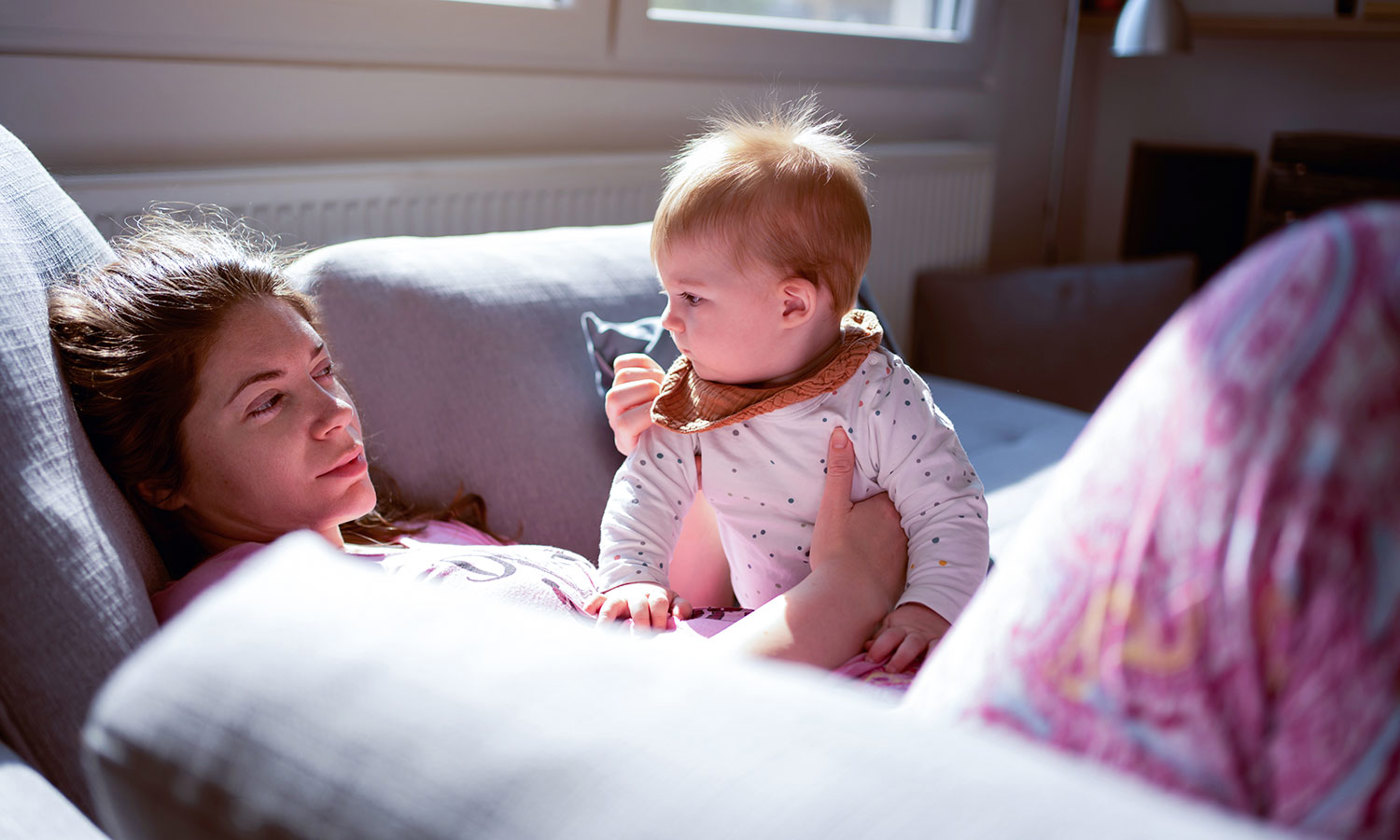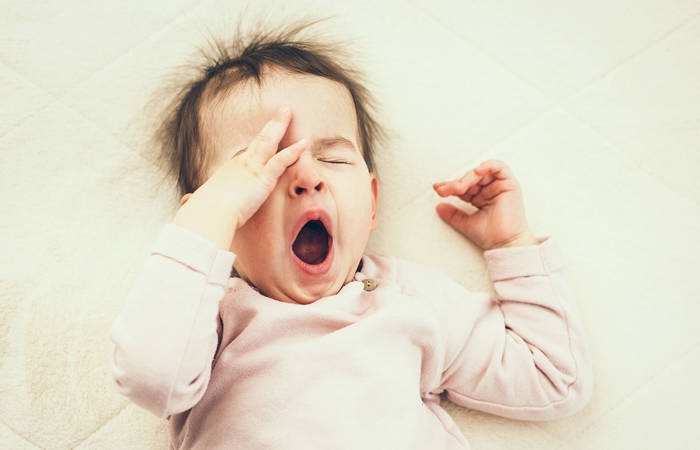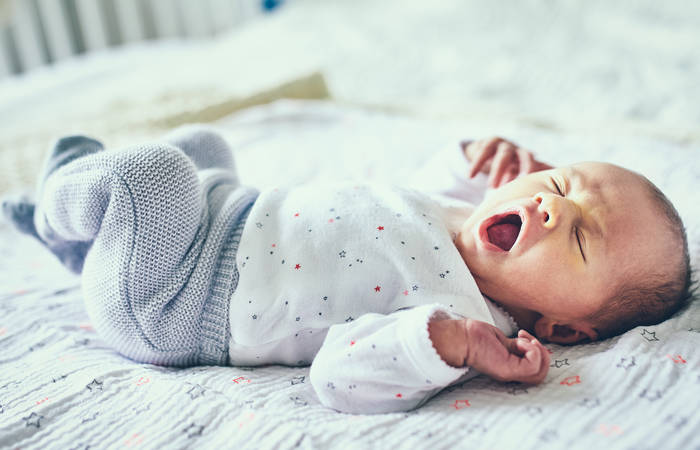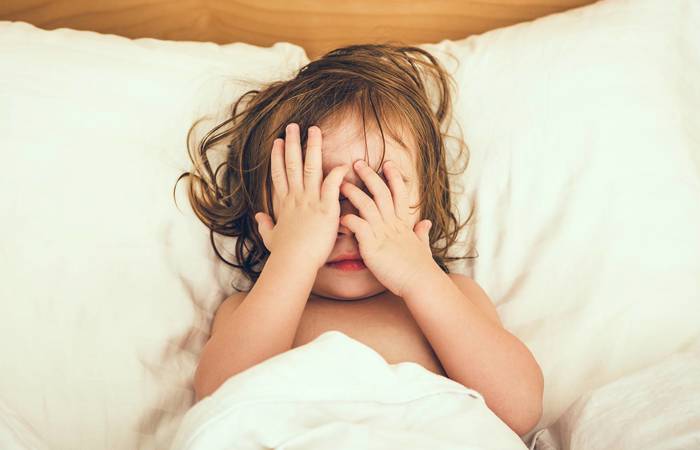Like what you see?
Sign up to receive more free parenting advice.
Thank you for subscribing to our newsletter!
Lifestyle

Credit: iStock.com/dit:SrdjanPav
Parents know that good, restful sleep is important for their child’s brain development.
But sleep is just as important for parents, not just to function the next day but for their overall mental and physical health.
“Sleep is the third pillar of health, along with physical activity and diet,” says Dr Bei Bei, a senior lecturer and clinical psychologist.
“It’s fundamental to physical and mental health, as well as everyday function.”
The Australian Institute of Health and Welfare (AIHW) recently released a report on Australians and their sleep.
The report says that getting enough sleep helps with regulating appetite, metabolism and mood, as well as immune, hormonal and cardiovascular function.
It is also essential for cognitive functions and workplace performance in adults, while the length and quality of sleep are associated with self-reported life satisfaction.
The report warns that poor sleep can seriously affect a person’s quality of life and increase the risk of developing chronic health conditions.
It also has a substantial impact on the Australian economy.
What is a sleep ‘problem’?
There is a wide range of sleep problems.
On one end of the scale is what Dr Bei refers to as externally caused sleep problems.
“Sleep involves timing, duration, quality, and regularity,” she explains.
“All of these things can be disrupted by something external, like having a new baby, who can potentially reduce the amount of night-time sleep parents have and increase the number of awakenings parents experience.”
There are also self-imposed sleep disruptions like binge watching a new series or late nights spent on a work presentation.
And then there are those that don’t involve choices and include a range of sleep disorders such as insomnia, body clock (or circadian rhythm) disorder, hypersomnia, and sleep apnea.
“The biggest problems new parents face during the first year of parenthood is sleep deprivation,” adds Dr Bei.
“There is no doubt that having a new baby puts a dent in the quality of sleep for both parents.
“While the experience of sleep deprivation on new parents is dependent on their roles and responsibilities within the family unit, there is more and more focus on the impact of sleep on fathers.
“We are finding fathers are suffering from sleep deprivation, particularly those who aren’t able to take parental leave.
“They are unable to ‘catch up’ on sleep through daytime napping like their stay-at-home partners might be able to.”
Before fathers try to grab the hotly contested title for Most Tired, for women, sleep disruption starts before the baby is even born.
“For pregnant and new mothers, there are these three phases of sleep problems,” Dr Bei explains.
“First, one in three pregnant women have significant sleep problems in the third trimester.
“Then, there is childbirth, where we know mothers don’t get much sleep during the process, especially during night-time labour.
“Finally, they are thrown into night-time care for a newborn.
“It’s a really challenging situation.”
To add to that, single parent families don’t have anyone to share the sleep deprivation load.
“While there is limited research on single parents and their sleep, from my clinical experience, single mums really struggle with sleep deprivation as they have little support to share the night load,” add Dr Bei.
Early parenthood is a particularly vulnerable time for new parents when it comes to insomnia.Dr Bei Bei
Stay up to date with the latest news and articles from First Five Years
Thank you for subscribing to our newsletter!
The consequences of poor sleep
The AIHW report outlines evidence that suggests poor sleep and sleep problems “increase the risk of developing or aggravating chronic conditions like hypertension, heart disease, type 2 diabetes, stroke and mental health conditions”.
Poor sleep is also associated with “obesity, smoking, low physical activity, frequent consumption of fast food and excessive alcohol consumption”.
The report also found that sleep problems contributed to more than 3,000 deaths in Australian in 2016-2017 and cost Australia $51 billion in the 2019-2020 financial year.
“While there are several studies that link poor sleep to negative health outcomes, it is also very difficult to tease out the causal effects that are specific to poor sleep,” explains Dr Bei.
“We do know that restricting sleep will affect a whole range of physiological measures. What we don’t know very well is whether sleep disruption during new parenthood has any long-term effects on parents’ health.
“In saying that, clinically I see women in midlife with insomnia, and they often pinpoint the birth of their first child as the point at which symptoms started.
“Early parenthood is a particularly vulnerable time for new parents when it comes to insomnia.
“As sleep deprivation kicks in, some people may form a difficult relationship with sleep, such as worrying about not sleeping.
“Even though sleep improves after early parenthood, these unhealthy thoughts and beliefs about sleep could become re-activated much later on and contribute to insomnia.
“I really believe people need to address sleep problems early on.”
Another big concern for new parents with sleep deprivation is the potential link with postpartum depression and anxiety.
“It’s a bit of a chicken and egg situation,” Dr Bei says.
“People with major depression are more likely to have sleep problems, however, sleep disruption could potentially also lead to worsened mood.”
The million-dollar question… how to get better sleep?
Dr Bei explains that counting the hours you slept isn’t the best way to tell if you had enough sleep.
“The best way to know whether you had a good night’s sleep is how you feel during the day,” she says.
“If you feel refreshed when you wake, you aren’t sleepy and you can do most of the things that you wanted to get done during the day, you’ve probably had a good night’s sleep.
“On one hand, it is important we all get enough sleep; on the other hand, being overly worried about the number of hours we sleep can actually make it harder to sleep well.”
Dr Bei recommends the following advice on tackling the most common sleep problems.
For sleep deprivation, the most common for new parents, she recommends short naps between late morning and early afternoon.
Avoid late afternoon and evening naps as they can disrupt your need for sleep at night.
Skip the naps, but use the time to focus on resting if daytime naps are having an impact on your night-time sleep.
When it comes to sleep disruptions, she recommends looking at the family roles at night – whether there is a way to share the burden, or if and where possible, look to outsourcing support at night.
For insomnia, where some parents can’t sleep even when the baby is sleeping, Dr Bei highly recommends cognitive behavioural therapy for insomnia (CBT-I).
The Sleep Foundation explains that CBT-I is a type of psychotherapy that focuses on the connection between how we think, what we do and how we sleep.
The thoughts, feelings and behaviours that contribute to the symptoms of insomnia are explored during treatment and then reframed to work towards a more restful sleep.
“CBT-I is the most researched and most effective non-medication based intervention for insomnia and is very effective on new parents,” add Dr Bei.
“CBT-I is also covered by Medicare when treated by a psychologist and telehealth is also available to make it easier for new parents juggling a baby’s schedule.”
To avoid circadian misalignment, or disrupting your body clock, Dr Bei recommends healthy light hygiene, which means keeping the house light dim one to two hours before sleep, using dim nightlight during night awakenings for infant care, getting very bright light upon awakening, and getting enough daylight during the day to maintain a healthy circadian system.






